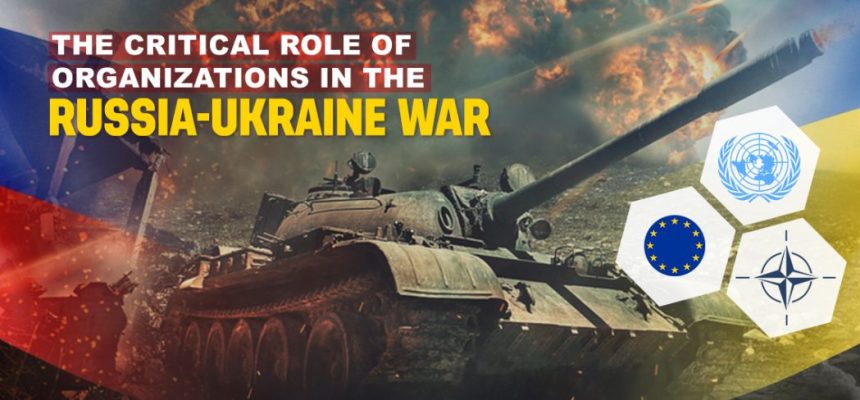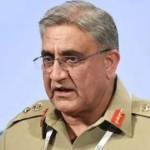The role of intergovernmental organizations dates to the time of World War-I when for the first time League of Nations was founded by the former US president Woodrow Wilson in 1920. The organization was aimed at maintaining world peace. So, the treaty of Versailles was signed which turned out to be the reason for the rise of fascism, hyper-nationalism, and a gateway to World War-II. Hence, the League of Nations failed.
Post-World War-II in 1945, another intergovernmental institution was founded, the United Nations Organization (UNO)with the aim to maintain international peace and security through its wing of the Security Council. However, this organ of UNO has failed to resolve the major international issues of peace and security such as the invasion of Afghanistan by the US, the Kashmir issue, the issue of Palestine, and the most recent and contemporary issue of the Russian invasion of Ukraine.
- The first core reason for failure is all five permanent members (US, UK, Russia, France, and China) of the Security Council are the veto and nuclear powers.
- The Second reason for the UNSC failures is that the major security challenges of the world are created by its permanent members and there is no procedure for their accountability.
In the recent crises of Russia and Ukraine, UNSC could only express its deep concerns and stressed the peaceful settlement of the issue. However, in February 2022, Russia vetoed the UNSC resolution which condemned the Russian invasion of Ukraine and asked Russia to withdraw from it. Whereas, China the other veto power state also abstained from the resolution of the Security Council while India and United Arab Emirates (the non-permanent members)also abstained.
In 1949 a military alliance was created by name of the North Atlantic Treaty Organization (NATO) to counter the USSR and stop it from territorial expansion. So, Russian concerns are an obvious fact. Initially, there were 12 founding members of NATO. Recently, it is the fourth wave of NATO’s expansion since its formation as it is in talks with Ukraine to adopt the membership which is the core reason for the Russian invasion of Ukraine.
Read More: Russia Ukraine Conflict Explained
Putin asked in 2007, ‘‘NATO has put its frontline forces on our borders this expansion represents a serious provocation that reduces the level of mutual trust and we have the right to ask: against whom is this expansion intended? And what happened to the assurances of our Western partners made after the dissolution of the WARSAW Pact?’’
In 2008, NATO offered membership to Ukraine and 20% of Ukrainian wanted to join because of article 5 of the NATO, which states that the attack on one country will be considered an attack on all the countries of the NATO alliance. According to the former US ambassador to Russia, Williams J. Burns, ‘‘Ukrainian entry into NATO is the brightest of all redlines for the Russian elite and is a direct challenge to Russian interests.’’
Despite so many warnings from Russia and highlighting their concerns; NATOexpansion triggered a conflict and became a direct actor in the Russian-Ukraine conflict of 2022.NATO’s expansion is not the sole reason for mistrust of Russia but earlier the USA also backed off from the Intermediate-Range Nuclear Treaty (INF-Treaty) in 2019 under President Trump’s administration, it was signed between Mikhail Gorbachev and Ronald Raegan in 1987.
European Union is a liberal mask of NATO. After the Russian invasion of Ukraine, European Union imposed waves of sanctions on Russia.
- The 1st wave of sanctions was seen on 23rd February which continued to the 6th wave on 3rd June 2022.
These sanctions were imposed to cripple the wings of the Russian economy and to bring Russia to its knees so it would withdraw the forces from the Ukrainian territory. European states sent military aid to Ukraine while sanctioning Russia. At the same time, the EU alliance also pressurized the other countries to condemn Russia’s action and seek support for Ukraine. However,
The Eu’s sanctions on Russia had reversed the impacts on Europe:
- Eu’s sanctions have failed and a new strategy is needed, Hungary’s economy relies on gas.
- The draft of the peace agreement is needed as Ukraine will never win the war against Russia with American-trained personnel.
- The European sanctions have erupted the economic recession.
- The economic trouble in Europe will cost political instability.
- A split among the European countries as they depend upon Russian energy and now buying in Rubles.
On the other hand, BRICS and SCO are playing their part to counter Russian isolation. The BRICS summit was held on 23rd June 2022 where Russian President Vladimir Putin appeared for the first time after the invasion of Ukraine. And the SCO submission was held in Samarkand from 15-16 September where Putin met with the leaders of Central Asian Republics, leaders of South Asia, Iran, China, and Turkey.
On 29th September 2022, a referendum was held in Moscow controlled four regions of Ukraine; Donetsk, Kherson, Lugansk, and Zaporizhzhia, and on 30th September 2022 Russian President Putin signed the annexations treaties despite the warnings from the secretary of the UN. In the session of the United Nations Security Council, Russia vetoed the resolution against its annexations of Ukrainian territories while China and India abstained.
Read More: Russia War With Ukraine: Is Ukraine Putin’s Western Hemisphere?
It was not the first time that UNSC was unsuccessful but it also failed to stop the Indian annexation of Kashmir in 2019 when India abrogated article 370. It failed to resolve the Palestine issue as per its resolutions and couldn’t stop Israel’s atrocities in Palestine. UNSC could never question NATO’s expansion, the US bombing of Afghanistan, Iraq, and Syria. Therefore, these conflicts have exposed the world’s largest organization and it has no power and authority over stronger states.
What needs to be done?
- The UNSC needs to be restructured.
- There is a dire need for the inclusion of more member states in the permanent enclosure.
- The root cause of the conflict should be explored.
- There should be a ban on military alliance (NATO) expansions.
- The Veto power states need to be held accountable.
- NATO and the EU should be questioned over their record of war history for the past 73 years.
The world has traveled a long distance from the cold war era to globalization, interdependence, and exclusivity so the sanctions would not work. The practice of old playbooks shall be collateral damage to global peace and security.
The world has become more vulnerable and facing non-traditional security threats such as climate change, cyber security, food security, etc. Direct territorial war or conflict is the tip of an iceberg but the realities are underneath and invisible.






